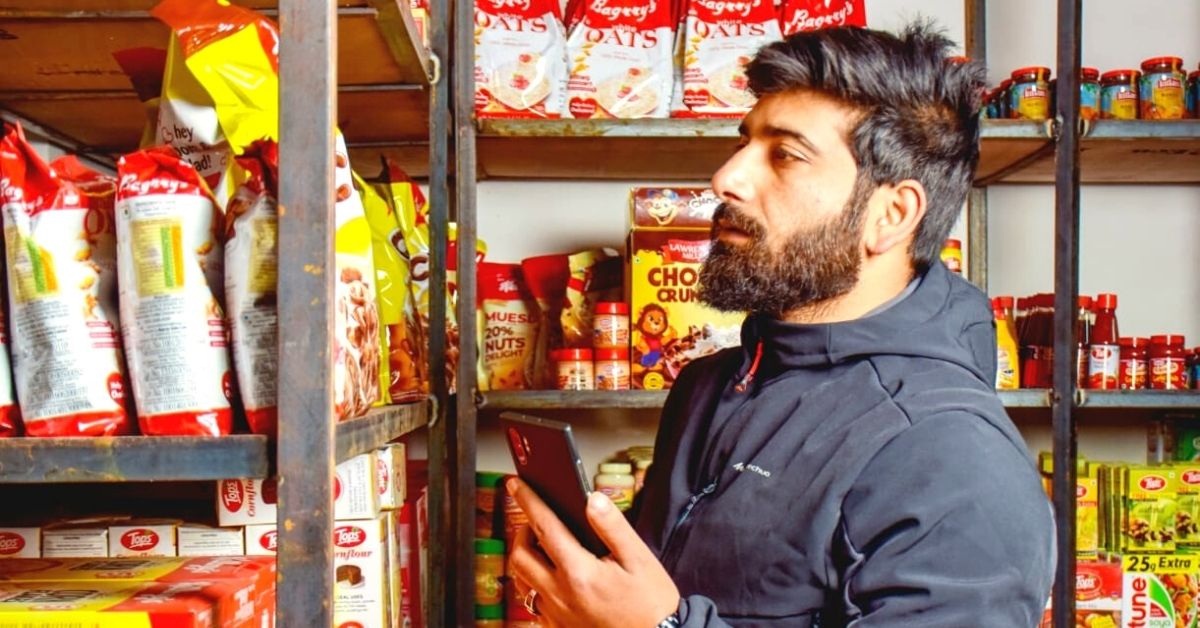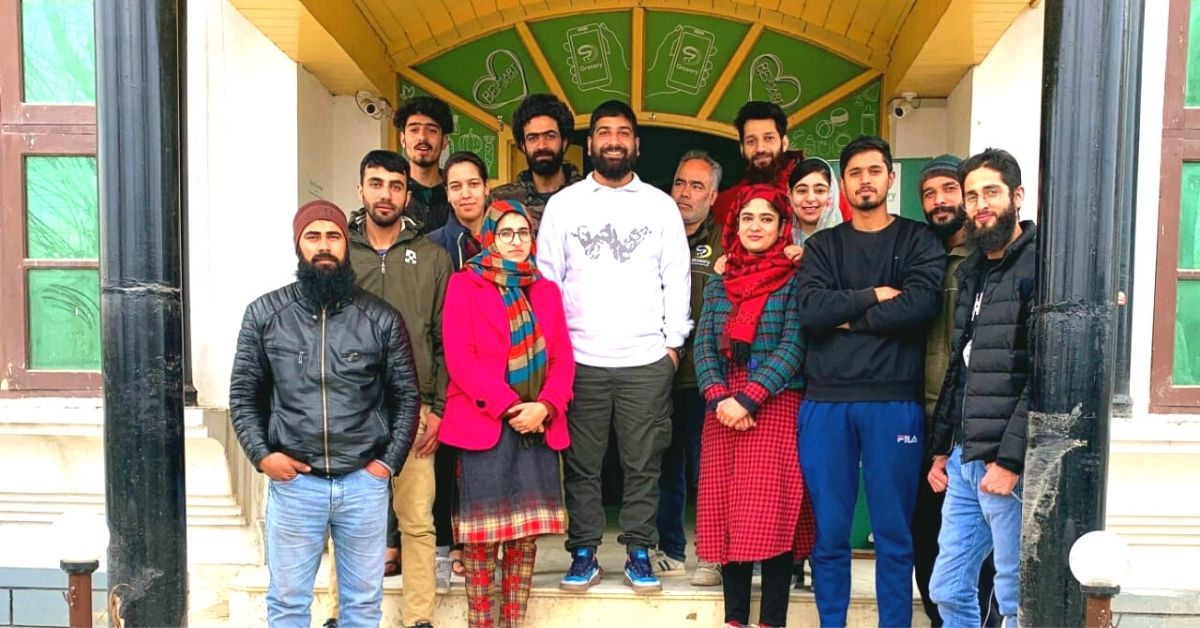Unlike metros and developing cities across India, Jammu & Kashmir does not enjoy the liberty of flourishing e-commerce businesses. Uncertainty looms around the Valley, with sudden lockdowns, abrupt communication cuts, and an increasing number of violent incidents. This situation does not allow favourable conditions for companies to grow.
The occasional uninvited crisis also makes life difficult for locals in accessing necessities such as groceries, vegetables, and other items of daily needs. This is where 28-year-old Malik Aadil has stepped in. He quit his job to start the Valley’s first and largest online grocery store, Groxery — The Store Next Door.
A graduate with an MBA degree marketing from Bengaluru, Aadil joined Grofers, an online grocery delivery store in 2015. After working there for two years, he thought about replicating the business model in his hometown.
“However, the situation in the region, as well as a lack of finances and the presence of a reliable workforce, left me with doubts surrounding how to proceed. So I kept the plans on hold. Meanwhile, I decided to quit and started an event management and advertising startup called ProBranding365 in 2017,” Aadil tells The Better India.
He formed the company with his cousin Shuaib and friend Hyder. “Things were going well, and the team grew to include 20 people in four months. We bagged major clients in the beverage, automotive and property sector. After building a team of 250 persons across ten cities, I decided to take a break in March 2020 and returned to my hometown in Kashmir,” he says.
How a crisis brought opportunities

Aadil says that around this time, the COVID-19 lockdown was announced, and he became confined to his village in Bandipora. “Here, I saw people struggling to buy groceries, especially the elderly, who relied on neighbours or friends to help them procure supplies,” he adds.
“During the initial days of the lockdown, I chanced upon my notes about the e-commerce startup, which had never materialised. I thought the COVID-19 situation would be the right time to try things out. I started discussing ideas with friends and mentors working in corporates. They guided me in preparing the base for my business,” Aadil says.
He asked the marketing team from his advertisement startup to help design the logos, and help bring in experts to build the mobile app. “We started working on the business in April and launched the app on 20 July 2020,” the entrepreneur says. Aadil adds that the e-commerce store offers a vast range of products, from groceries to pet care, personal items, vegetables, and stationery among other items.
“Around 60% of the products are directly sourced from vendors, while the remaining are procured locally from various businesses. Customers can choose between two types of delivery, express or slot. With express delivery, ordered items reach customers in 70 minutes. Under the latter allows, a specific time slot can be chosen as per the convenience of customers,” Aadil explains, adding, “The express delivery is the USP of the company, as no other e-commerce platform in the Valley offers such quick services.”
He says he received a much larger response than he first expected. “We have 65,000 app downloads to date, with 300 downloads every day. The average cart order is Rs 1,250, and about 400 orders are received every day,” Aadil says. Reviews of the store say that it’s the first of its kind in the Valley, and that their services have only been improving.
Shazia Farooq from Srinagar has been using the app for almost seven months now. “There was a dire need of such a startup, which could make accessing daily necessities easier. I use other e-commerce platforms, but the company was the only one delivering during the lockdown period. Local grocery shops were closed, and Groxery made it possible to get products delivered at home. Even with weak internet connectivity, the delivery executives ensured that orders were accepted and delivered,” she adds.
Lifeline of the valley

Aadil says the figures are commendable, as the Valley faced logistical challenges between 2018 and 2020 because they only received 2G internet. “The customers were patient, and spent 25 minutes to order items with poor internet connectivity with 2G, as against 4G, which would have taken a couple of minutes,” he adds.
“In the beginning, people were reluctant to make online payments and preferred cash on delivery. But as trust started to build, 70% of the payments were converted to online,” he says.
Besides technical issues, Aadil struggled with ensuring employee safety during the pandemic and creating an ecosystem for no contact delivery.
He now has plans to expand delivery services to Budgaon, Pulwama, Jammu and other districts. “We have 35 persons employed with us at present, and I plan to increase the staff to 100. It gives me immense satisfaction to be able to serve the people in the Valley, especially as they are in need and find it difficult to access basic necessities,” he adds.
Edited by Divya Sethu
No comments:
Post a Comment